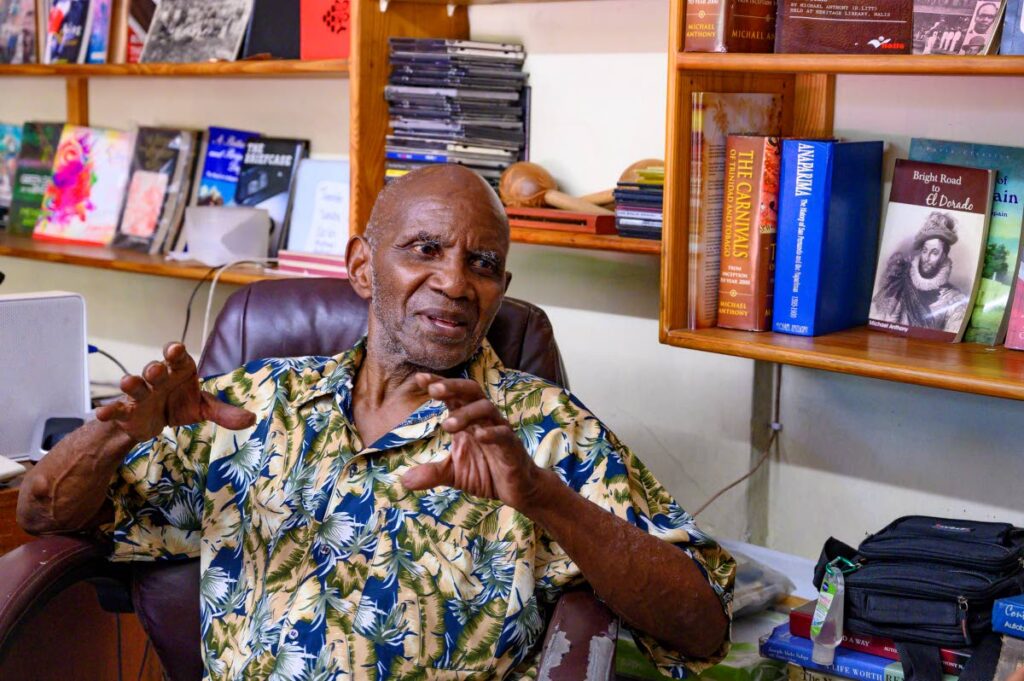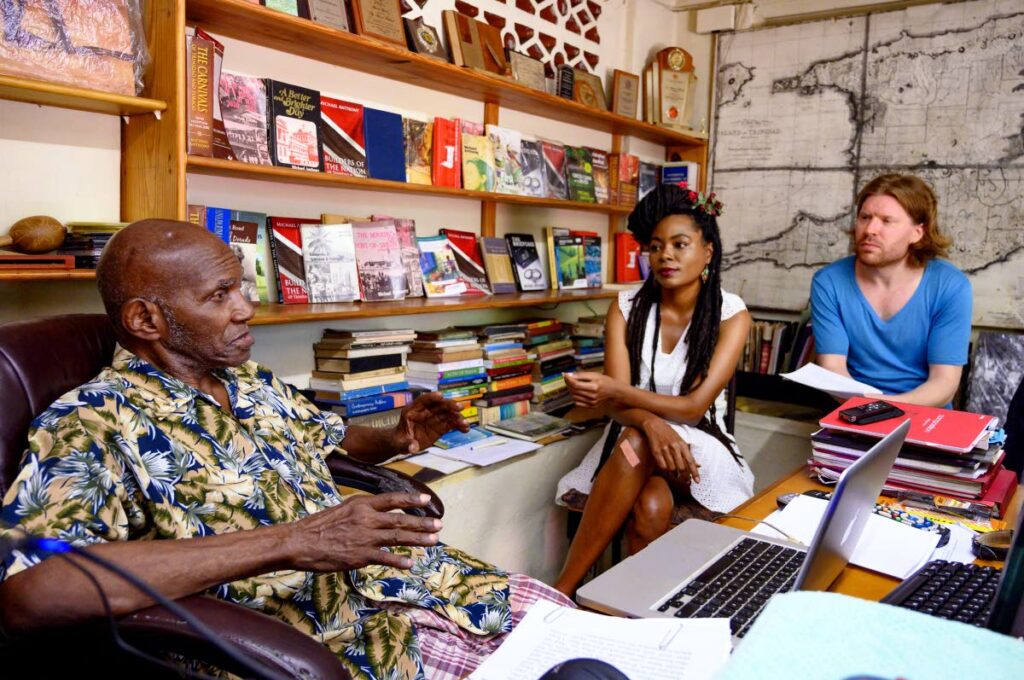Michael Anthony: the people’s writer

JARULA WEGNER
On August 24, the celebrated Trinidadian writer Michael Anthony died at the age of 91.
Growing up in Mayaro, Anthony began writing poems and publishing these in local newspapers. To follow his dream of becoming a writer, he moved to England in 1954, where he worked at various jobs while joining a growing community of West Indian intellectuals who broadcast their works on the BBC’s radio programme Caribbean Voices.
Anthony submitted poetry and short stories to the programme until VS Naipaul recommended that he approach the publisher André Deutsch with a novel. Through Naipaul, Anthony achieved his first literary successes, including The Games Were Coming (1963), The Year in San Fernando (1965) and Green Days by the River (1967). These works quickly established him as a Caribbean writer who offered, in the words of CLR James, “something new, and native in the best sense of the word.”
On his return to the Caribbean, Anthony gave a lecture at the Caribbean Writers and Artists Convention in 1970 in Guyana. In his talk, Growing Up with Writing he commented on the difficulties of making a living as a writer in the Caribbean.
Anthony said, “I really think that the place of the West Indian artist is in the West Indies when the West Indies has developed sufficiently to really offer him a fair living. But this will not be in the near future, it won’t be in our time.”
Luckily, he was wrong. Almost 50 years later, when he gave one of his last long interviews to my partner Amanda McIntyre and me, Anthony corrected this earlier statement by saying: “Now, writers have it much better, they can come through. Especially if they are good and they are resourceful, they can make a living. I know that, I’ve seen so many young writers of talent.”
Part of the reason he was wrong was because of his own doing.
On his return to Trinidad in 1970, Anthony initially received small jobs as a writer, with little freedom and a negligible income. His breakthrough came after he submitted an essay entitled Writing for the Younger Ones to a National Library competition that celebrated the International Book Year 1972.
He was the only writer to follow through with the project, and thanks to this submission, was recommended by Prime Minister Eric Williams to receive a post at the National Cultural Council, then directed by Dr JD Elder. Anthony held the post until he retired, publishing one work of writing after another through to his nineties.

Regardless of whether one reads the stories of his childhood in some of his first novels; or his historical fictions in short stories, novellas and later novels; or his historical works which have become classics, like The Carnivals of Trinidad and Tobago (2011) – he was a writer who always had the wider public in mind.
In an interview with Reginald Clarke in 1990, Anthony explained, “I think a good style is a style that doesn’t attract attention, and I think the important thing is, in telling a story, you want to communicate, and the important thing is to communicate as clearly as possible. So I think simplicity is a very, very important thing.”
The love and admiration he received from the public underlines the success of his approach.
Anthony was one of the reasons why it has become possible to make a living as a writer in the Caribbean. He demonstrated how important and enriching it is to have writers of fiction and history describing the world around us.
In 2021, he said, “if one likes writing, one has to write, and the only place one can write about is the place that one knows…So it’s just that I think the things you love, or the things that are important in your life, whether you love them or not, they take place and that makes a part of your story.”
Anthony’s stories draw on his own experiences and his tireless historical research.
Much of his writing aims at telling the story from a local perspective.
His books have been included in school curricula and he himself was invited to public readings time and again. Just as it is the wider Caribbean public who enjoys his writings, it will also be this public that will miss him the most.
Michael Anthony (February 10, 1932-August 24, 2023) is survived by four children.
Dr Jarula Wegner is the Hundred Talents Young Professor of German and Comparative Literature at the School of International Studies, Zhejiang University, China.

Comments
"Michael Anthony: the people’s writer"